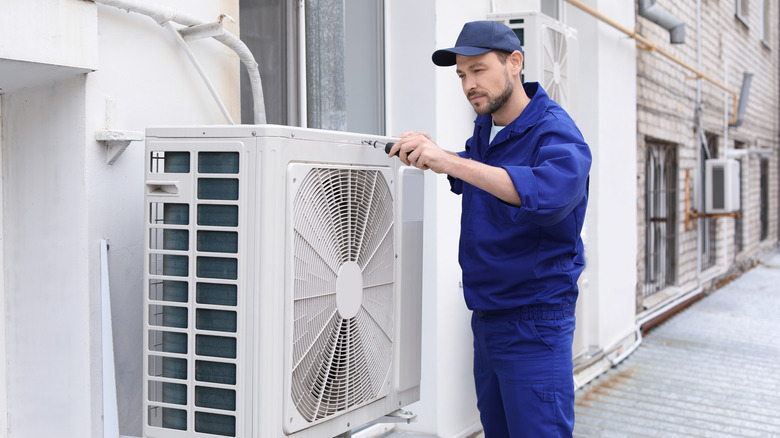In terms of maintaining a cozy environment in our houses and work environments, grasping HVAC systems is essential. HVAC, meaning heating, ventilation, and air conditioning, plays a vital role in controlling indoor temperatures and air quality throughout the year. But with multiple options available, finding the appropriate system for your preferences can feel overwhelming. This article intends to break down the differences between central and ductless HVAC systems, aiding homeowners make informed decisions about their climate control options.
As we investigate central and ductless options, we'll discuss how these systems work, the benefits and drawbacks of each, and tips for choosing the most suitable one for your house. Whether you're enhancing an old system or preparing for a new installation, knowing how these HVAC choices stack up will allow you to create a welcoming and eco-friendly living space. Let's dive into the world of HVAC and discover which system might be the perfect fit for your unique situation.
Understanding HVAC Technologies
HVAC stands for heating, ventilation, and air conditioning, which it encompasses the systems used to supply heating and cool options for home and commercial locations. Heating systems mechanisms warm the interior environment during cooler months, while air conditioning units lower the temperature of it down during the heat of the summer season. Proper ventilation is key for guaranteeing clean air circulates throughout the area, which not just improves convenience and also is important in upholding the quality of indoor air.
A typical HVAC system consists of various components working together. The core elements are a furnace or boiler for warming, an air conditioning unit or cooling system for cooling, ductwork to carry air, and a thermostat to regulate the temperature. Grasping how each element operates helps homeowners and building managers know how to maintain and troubleshoot their systems effectively.
As HVAC technology advances, new advancements appear to enhance energy efficiency and comfort inside. Intelligent HVAC systems now integrate with automated home technologies, allowing for more precise control and oversight. Additionally, solutions like mini-split systems or geothermal heating offer different solutions that can meet specific requirements, making it important for buyers to evaluate various options when selecting an HVAC solution for their area.
Typical HVAC Problems and Resolutions
Property owners regularly experience a variety of HVAC issues that can disrupt comfort and efficiency. One common issue is poor heating or cooling, which can be due by filthy filters, blocked vents, or an improperly sized system. Routine maintenance, including air filter replacements and clearing airflow pathways, can help alleviate these issues. If problems persist, it may be important to seek advice from a specialist for additional diagnosis or adjustments.
Another frequent issue is odd noises coming from the HVAC system, such as clattering, squealing, or hissing. These sounds can point to loose components, worn belts, or airflow restrictions. Homeowners should promptly address any unusual noises by checking for loose parts or dirt in the system. If the sounds continue, reaching out to an HVAC technician is advisable to prevent potential damage and ensure safety.
Lastly, high energy bills can signal that an HVAC system is not functioning efficiently. Frequent culprits include poor insulation, outdated equipment, or overlooking routine maintenance. To combat https://www.berkeys.com/fort-worth-air-conditioning/ , homeowners should consider scheduling regular tune-ups to keep the system in optimal condition and explore energy-efficient upgrades. Implementing smart thermostats and enhancing insulation can also help reduced energy consumption and decreased bills.
Energy Conservation and Intelligent HVAC Selections

Choosing the best HVAC system is vital for enhancing energy efficiency in your house. Traditional HVAC systems often come with higher upfront costs because of the complex installation of ductwork, but they can competently heat or cool larger rooms. On the other hand, ductless HVAC systems, like mini-splits, deliver versatility and targeted comfort, permitting you to cool or heat separate rooms bypassing ducts. This may produce decreased energy consumption, especially if you have sections that aren't used often.
Smart HVAC choices can further boost energy efficiency. The implementation of smart thermostats permits homeowners to manage their HVAC systems from a distance and set schedules that match their daily routines. This minimizes energy waste by guaranteeing that heating or cooling happens only necessary. Additionally, many modern HVAC systems are engineered with energy efficiency ratings that guide consumers about expected energy use, helping them to choose systems that best suit their needs.
Putting money into energy-efficient HVAC options not only contributes to diminishing your energy bills but also affects favorably the environment. By opting for systems that utilize renewable energy sources, like solar-powered HVAC, you can minimize your carbon footprint. Consistent maintenance and updates, including the installation of energy-efficient air filters, enhance overall system performance and indoor air quality, resulting in your home more cozy and sustainable year-round.
